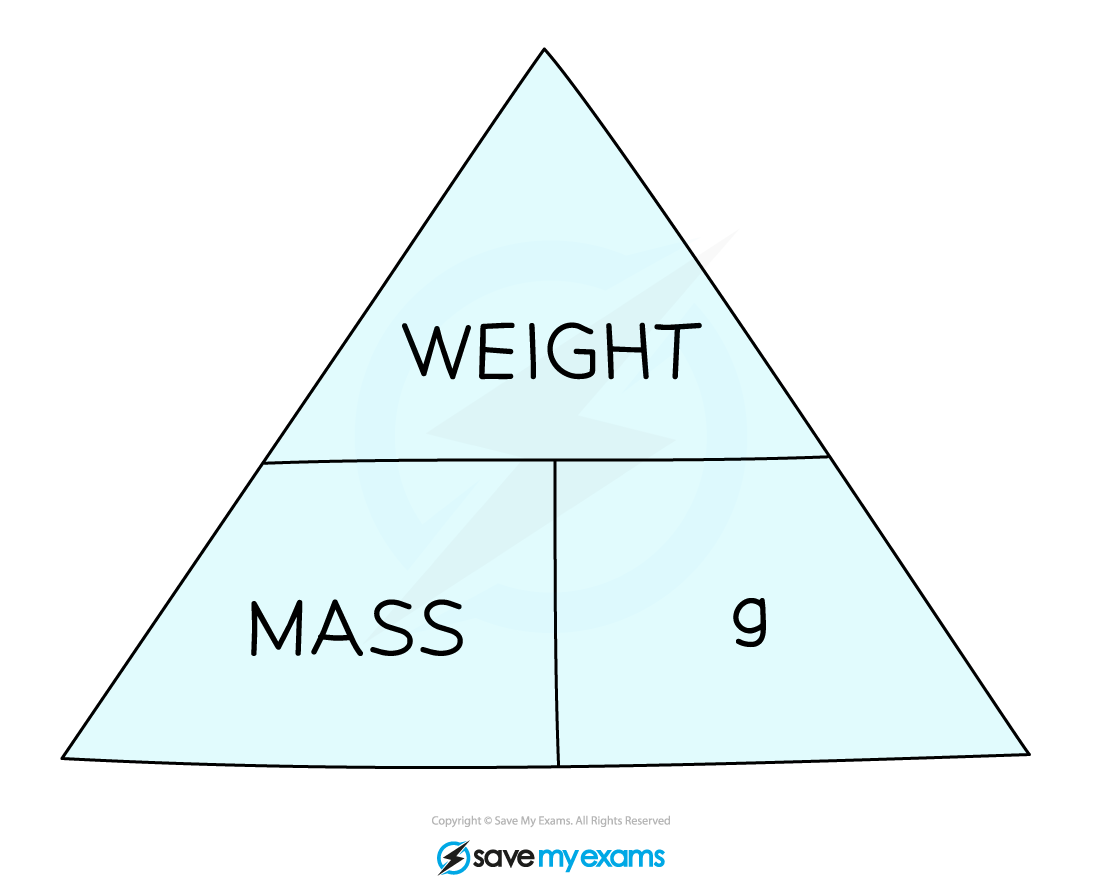Mass & Weight (Oxford AQA IGCSE Physics): Revision Note
Exam code: 9203
Mass & Weight
What is the difference between mass and weight?
Mass is a measure of how much matter is in an object
Mass is measured in kilograms (kg)
Weight is the force exerted on an object with mass due to gravity, i.e. the force exerted on an object when it is placed in a gravitational field
Weight is measured in newtons (N)
The mass of an object is independent of its location
A 1 kg bag of sugar will have a mass of 1 kg on Earth and on the Moon
The weight of an object is dependent on its location in the Universe
A 1 kg bag of sugar has a weight of almost 10 N on Earth, but a weight of 1.6 N on the moon
This is because weight depends on the mass of an object and the strength of the gravitational field in which the object is located
The weight equation
To calculate weight:
Where:
W = weight measured in newtons (N)
m = mass measured in kilograms (kg)
g = gravitational field strength measured in newtons per kilogram (N/kg)
You may need to rearrange this equation in the exam, you can use a formula triangle to help you do this
Weight equation triangle

Worked Example
A student has a mass of 60 kg. The gravitational field strength on Earth is 9.8 N/kg, and the gravitational field strength on the Moon is 1.6 N/kg.
Calculate the force of weight acting on the student if they were located on Earth and on the Moon.
Answer:
Step 1: List the known quantities
Mass, m = 60 kg
Gravitational field strength on Earth, gE = 9.8 N/kg
Gravitational field strength on the Moon, gM = 1.6 N/kg
Step 2: Write out the equation
Step 3: Substitute in the known values to calculate the student's weight on Earth
Step 4: Substitute in the known values to calculate the student's weight on the Moon
Examiner Tips and Tricks
The gravitational field strength on Earth is 9.8 N/kg, but this is sometimes rounded to 10 N/kg.
You do not need to remember the value of g as you will be given it in the exam.

Unlock more, it's free!
Did this page help you?